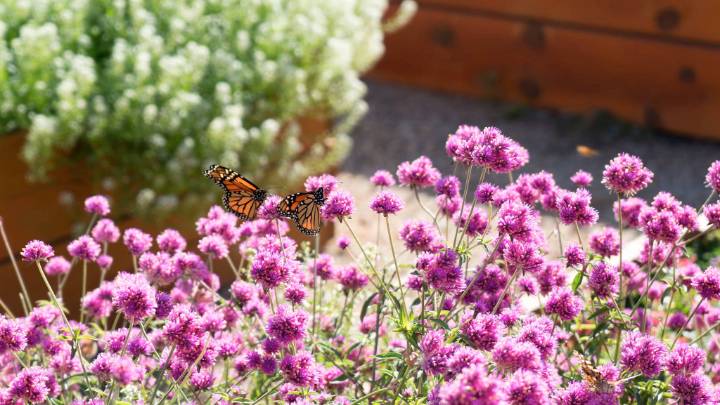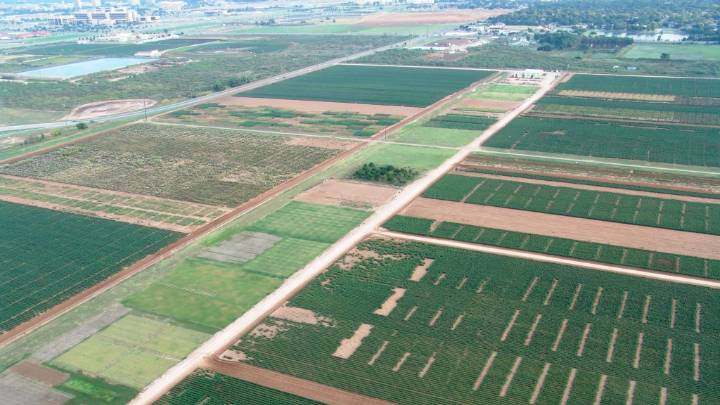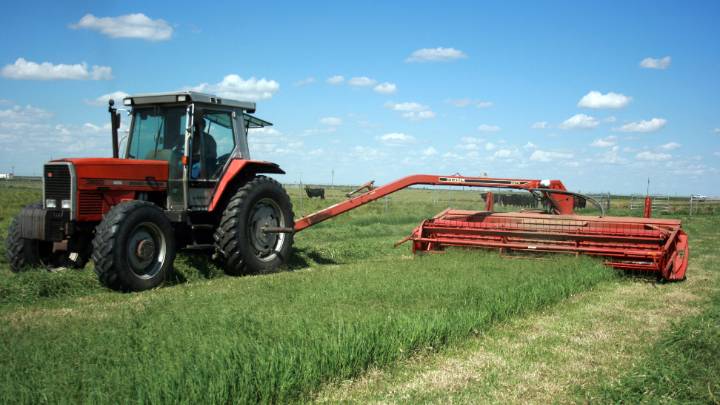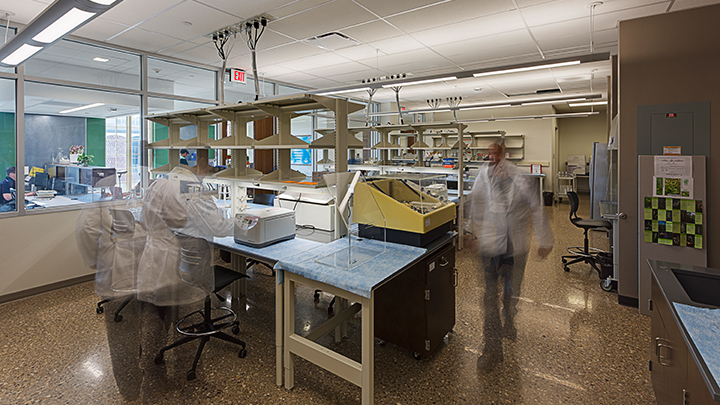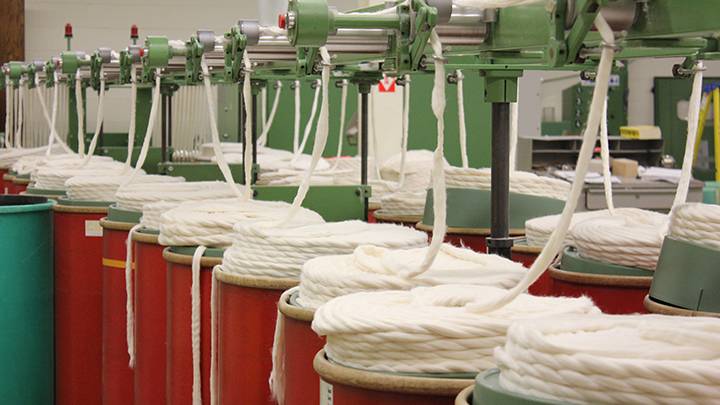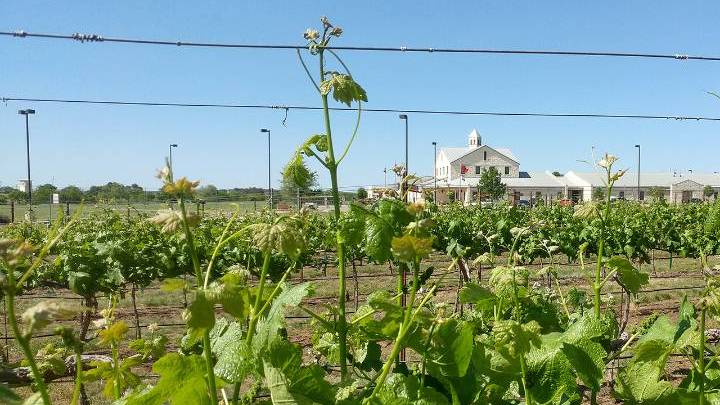Research in PSS
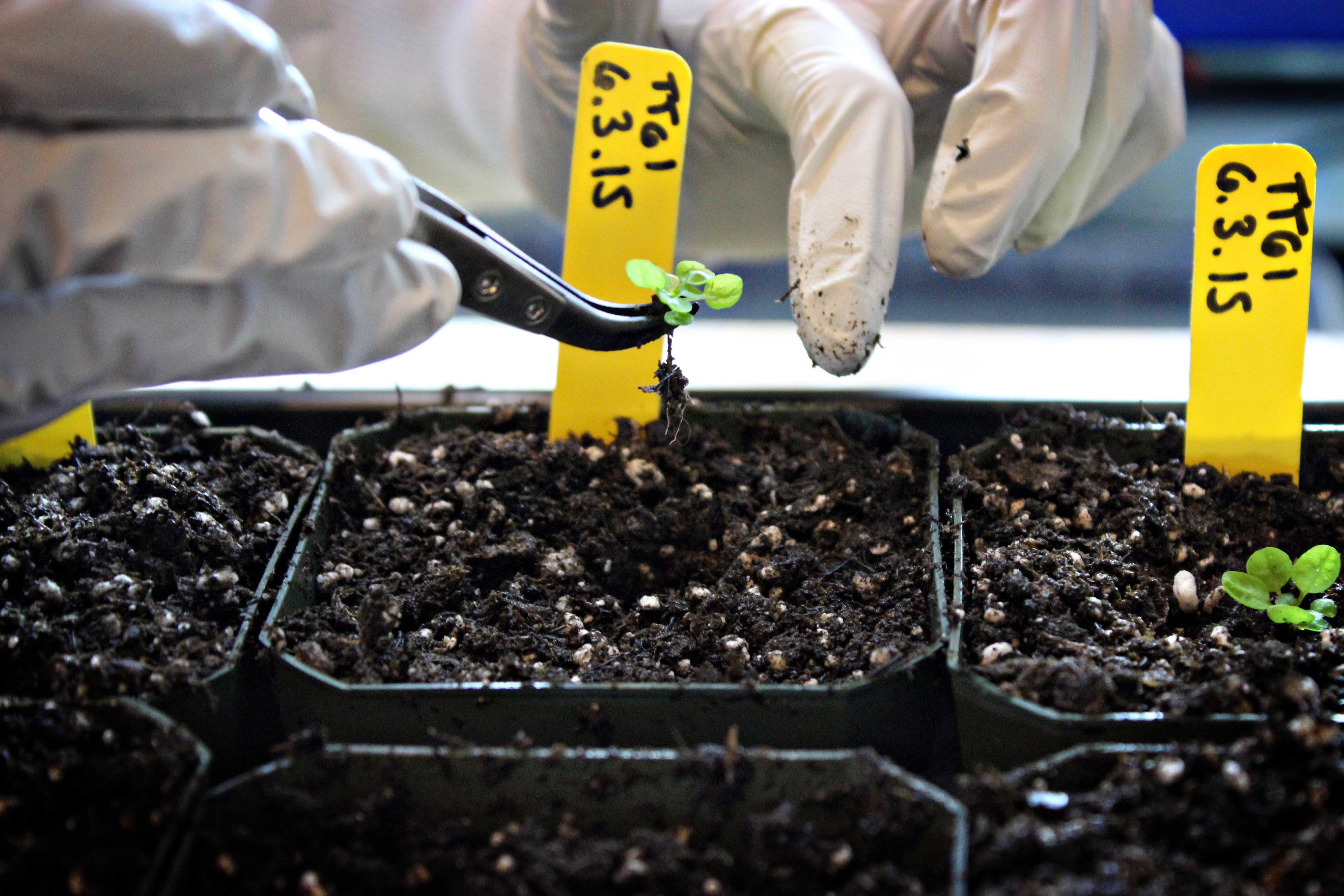
The Department of Plant & Soil Science at TTU is a student-focused and research-intense department, offering a range of opportunities for exploration at the cutting edge of academic and functional research. PSS faculty, staff, and students conduct research from the level of plant genomics to large-scale ecosystem interactions and post-production processes.
Check out our department's research groups below to see how we are tackling the many questions surrounding the complex web of relationships between people, plants, soil, and the environment.
Research Groups
Biopolymer Research Group
The Biopolymer Research Group at the Fiber and Biopolymer Research Institute (FBRI) is an integral part of a growing collaboration with plant geneticists and biotechnologists. Its research objectives aim to explore and expand on our understanding of cellulose and other biopolymer structures, with a vision of transforming biomass into a new generation of bioproducts.
Learn moreEnvironmental Soil Chemistry Group
Environmental Soil Chemistry is the study of the chemical and physical forms and distribution of contaminants, nutrients, and carbon in soils and sediments. The Environmental Soil Chemistry Group in PSS is interested in understanding fundamental and applied aspects of elemental biogeochemical cycling and speciation, which include reactions such as surface adsorption, precipitation, dissolution and redox.
Learn moreSoil Ecology Laboratory
The Soil Ecology Lab works to better understand how soil microorganisms function and interact with plants across a variety of semi-arid ecosystems to ultimately influence key ecosystem characteristics and processes such as nutrient cycles, water storage and movement, climate impact, and plant productivity.
Learn moreCrop Ecophysiology & Precision Agriculture Laboratory
The Crop Ecophysiology & Precision Agriculture Laboratory strives to improve the bottom line of production agriculture by optimizing crop inputs and management while minimizing the impact of agriculture on the environment. The lab maintains state-of-the-art facilities to support their research, including sophisticated UAS platforms and sensors, high performance computation power and software programs, as well as various radiometers, field spectrometers, calibration equipment, and ecosystem measurement instrumentation.
Learn morePlant Ecology & Conservation Laboratory
The Plant Ecology and Conservation Laboratory investigates how biotic and abiotic processes interact to explain the dynamics of angiosperm populations and communities. Students and fellows conduct their research in collaboration with multidisciplinary national and international teams, and they have access to remote field locations, renowned scientists, and cutting-edge molecular techniques and laboratory facilities.
Learn moreOrnamental Horticulture Research Group
The Ornamental Horticulture Research Group aims to maximize the benefits of ornamental plants while minimizing the negative environmental impact of landscape plant management. The development of plant materials includes selecting, breeding or modifying plants through biotechnology, and promoting market acceptability through outreach. The group focuses on plant materials that are economical to grow and maintain — in home, work, and recreational plantings — and that require a minimum of water, fertilizer, or pest control chemicals.
Learn morePlant Molecular Genetics Laboratory
The focus of the Plant Molecular Genetics Laboratory is the development of the next generation of climate-resilient crops. Through comparative genomic, regulomic, and epigenomic analyses coupled with functional validation by transgenic and modern genome editing approaches, they aim to uncover patterns of genetic and epigenetic changes in wild rice, and lead to potential enhancements in stress tolerance and yield potentials of major food and economic staples.
Learn moreSingh Lab Group
Sustainable vegetable production encounters many challenges, especially in water scarce arid- and semi-arid areas such as Southern High Plains. The long-term goal of Dr. Singh's Lab Group is to determine the parameters leading to profitable production systems, including analyses of irrigation management, nutrient optimization, biotic and abiotic stress physiology, disease and pest control, cropping systems, and soil fertility management across a range of growth environments. They also address several non-traditional crops, such as industrial hemp.
Learn moreTAWC — Texas Alliance for Water Conservation
The Texas Alliance for Water Conservation (TAWC) is a unique partnership of area producers, data collection technologies, and collaborating partners that includes industry, university, and government agencies. The project uses on-farm demonstrations of cropping and livestock systems to compare the production practices, technologies, and systems that can maintain individual farm profitability while improving water use efficiency. Its ultimate goal is to extend the life of the Ogallala Aquifer while maintaining the viability of local farms and communities.
Learn moreTeCSIS — Texas Coalition for Sustainable Integrated Systems Research Program
The Texas Coalition for Sustainable Integrated Systems (TeCSIS) Research Program aims to meet the challenges of the future of agriculture and to study methods and systems that provide the best opportunities for a sustainable, successful, and profitable agricultural lifestyle for both communities and producers. The development of sustainable, integrated systems necessitates long-term study to fully evaluate their impacts and interactions with the environment. TeCSIS allows for this broad scope as a platform for a diverse range of research scientists, an education tool for students and agricultural producers, and an aid in government policy decisions.
Learn moreUrban Horticulture & Sustainability Group
The goal of the Urban Horticulture and Sustainability Group is to explore horticultural research as it applies to urban horticultural systems. This scope includes plant nutrition, vertical farming, controlled environment production, improving quality of life through plants, and resource sustainability.
Learn more
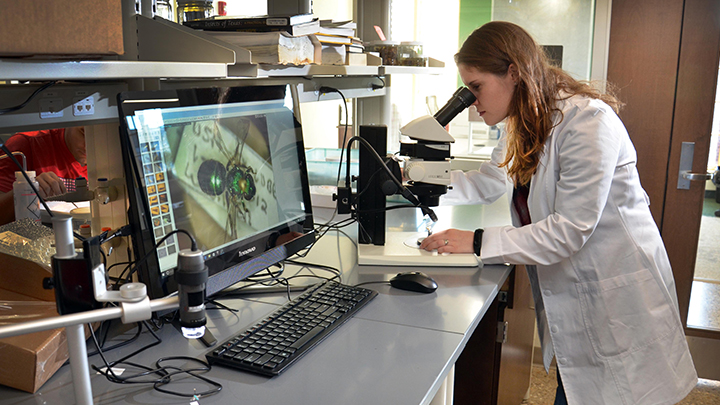
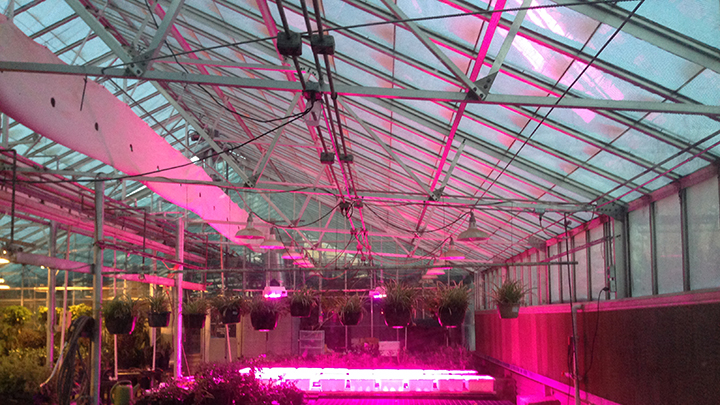
Latest Research News
- Simpson presented Cross-Disciplinary Research Excellence Award
- Catherine Simpson, an Associate Professor of Sustainable/Urban Horticulture within the Department of Plant & Soil Science, is part of research team selected to receive this year's Texas Tech Institute for Studies in Pragmaticism's Cross-Disciplinary Research Excellence Award...
- Adedeji, Akumu shine in Texas Tech Graduate Student Poster Contest
- Two outstanding students from the Davis College were recognized as winners in the 23rd Annual Texas Tech Graduate Student Poster Competition, during which graduate and post-doctoral students presented their research to general, non-specialized audiences...
- Noureddine Abidi joins prestigious 2024 Class of NAI Senior Members
- Noureddine Abidi, the Davis College's Associate Dean for Research, has been honored as a Class of 2024 Senior Member by the National Academy of Inventors Senior Member Advisory Committee and Board of Directors...
- PSS researchers among ‘most highly cited' in the world for 2023
- Two prominent scientists from the Department of Plant & Soil Science joined a small fraction of highly cited global researchers who've demonstrated significant and broad influence in their field of research...
- Davis College awarded $4.9M to explore boundaries of climate smart crops
- A new study led by Texas Tech University agricultural scientists presents a unique opportunity to derive low-cost proxies for greenhouse gas emissions and establish targeted climate smart commodities to strengthen the economic and environmental sustainability on the Texas High Plains...
Institutes & Facilities
Associated Research Facilities
Department of Plant and Soil Science
-
Address
Texas Tech University, Department of Plant and Soil Science, Box 42122, Lubbock, TX 79409 -
Phone
806.742.2838 -
Email
psstechsupport@ttu.edu

